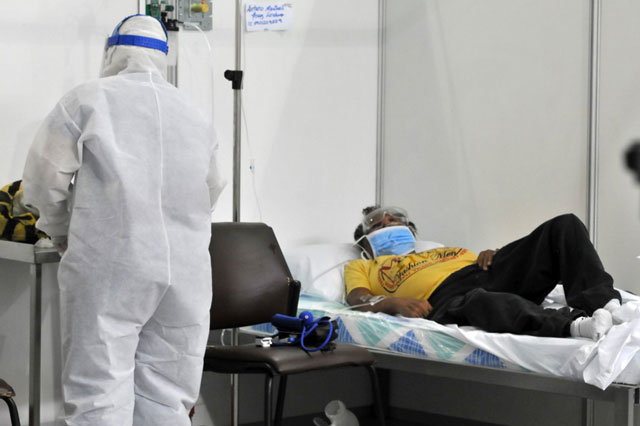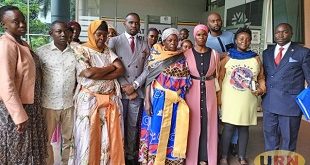
Kasese, Uganda | THE INDEPENDENT | Dr Suzanne Kiwanuka, a senior lecturer in Health Policy Planning and Management at Makerere University School of Public Health has called for a quick revision of the criteria of admitting patients such that only critical cases are considered for isolation.
Uganda recorded a total of 665 cases of coronavirus (COVID-19) by June 10, 2020, of which 119 have recovered and discharged from the different health facilities across the country where they had been isolated for treatment. Over 500 other cases still being managed at the various treatment centres.
But experts meeting via zoom this morning to brainstorm on how health workers can be protected from infection with the viral respiratory disease say the majority of these don’t deserve to be there.
“We cannot continue admitting everyone who tests positive and a pragmatic approach to decongestion is needed urgently. If we can relieve the system of asymptomatic and mild cases we will go a long way towards protecting the system from being overwhelmed”, she said noting that health workers at the front line need to be isolated.
She says that keeping only those that need critical care will reduce the number of health workers needed at facilities, reduce the burden on hard resources in addition to reducing exposure to the risk of infection to health workers.
Currently, a total of 21 health workers have tested positive for COVID-19 and the Ministry of Health says all of them are admitted and in stable condition. But, health workers attending the meeting raised concerns that this huge load of infection was only confirmed in a space of five days.
Dr Richard Idro, the President of the Uganda Medical Association said the fact that these health workers are being confirmed positive now, it means they got exposed about three weeks. He wondered whether all their contacts can be traced and warned Uganda to be braced for some critical cases in the coming days with big numbers of high-risk groups such as people living with HIV and those that live with non- communicable diseases.
Dr Deo Sekimpi, an occupational health specialist said health workers will only be protected if the community is protected or community infection is reduced.
“We need a lot more community engagement through VHTs for person-to-person communication about COVID so that community transmission can be reduced by every member of the community. That will mean fewer infected people will come to health facilities hence risk to health workers will be reduced,” He says.
However, while a number of recommendations are being made on how to handle the likely spike, the Ministry of Health earlier said they were preparing Namboole National Stadium to handle any excesses that may arise.
Kiwanuka says the likes of Namboole can be availed for isolation of such asymptomatic cases whose compliance is not guaranteed but not to burden the facility, but other experts disagreed recommending that government instead partners with private health facilities to handle some.
However, Dr Moses Muwanga, the Director of Entebbe Hospital that has been handling most of the COVID-19 cases says home management is one of the options currently being discussed as elsewhere in the world, some patients have managed to recover from home without necessarily infecting people around them.
******
URN
 The Independent Uganda: You get the Truth we Pay the Price
The Independent Uganda: You get the Truth we Pay the Price


